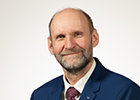Red symbolism in public spaces
Session: 15th Riigikogu, 4th sitting, information briefing
Date: 2024-10-23 16:17
Participating Politicians:
Total Speeches: 23
Membership: 15
Agenda Duration: 10m
AI Summaries: 23/23 Speeches (100.0%)
Analysis: Structured Analysis
Politicians Speaking Time
Politicians
Analysis
Summary
Seventy questions focused on the issue of red symbolism in public spaces, and the Prime Minister’s response was offered to Kristen Michal. During the discussion, emphasis was placed on the need for clear and unified regulation that would allow for the removal of unsuitable structures and various red monuments from public spaces, including facades belonging to protected areas. Specific references were made to construction code regulations and a previously compiled list of objects where such symbols are deemed inappropriate. Efforts are being sought for common ground between the coalition and opposition to process the law and establish clearer rules for removing problematic objects in the future. The second part of the discussion addressed a broader context—restrictions on the voting rights of citizens of Russia and Belarus in local elections in connection with the events of 2022, and a possible constitutional solution that would be a shared responsibility of the coalition and opposition and a legally sound basis. In addition, the case of the Lihula memorial was raised, with questions regarding legitimacy and the inviolability of private individuals, and what mechanisms would ensure the prevention of similar situations in the future.
Decisions Made 1
No decisions have been made regarding the current red symbolism; the discussion continues and it is recommended that in future work, amendments to the construction code and a clearer list of objects whose facade symbols must be removed should be handled in collaboration between the coalition and the opposition.
Most Active Speaker
The most active speaker was Helir-Valdor Seeder (Isamaa), who made several subsequent comments and addressed both the bills and specific solutions. Seeder's position is right-leaning (close to Isamaa’s solutions), and his remarks focused specifically on proposals concerning restrictions and legal mechanisms for citizens of third countries, as well as the need for the coalition’s unified behavior.
Esimees Lauri Hussar
AI Summary
Riigikogu member Jaanus Karilaid submitted a question to Prime Minister Kristen Michal concerning red symbolism in the public space.

Jaanus Karilaid
Profiling Fraktsiooni mittekuuluvad Riigikogu liikmedAI Summary
Jaanus Karilaid highlighted that the removal of the symbol of aggression located across from Stockmann on Tartu Road has been dragging on, and ministers are playing hot potato, constantly asking what solution can finally be found to remove it.
Peaminister Kristen Michal
AI Summary
Prime Minister Kristen Michal noted that the bill concerning the Construction Act, which includes a list of buildings in heritage protection zones and the removal of other red monuments from public space, must be processed in Parliament and could be a joint contribution by the opposition and the coalition to make the rules clearer.
Esimees Lauri Hussar
AI Summary
Chairman Lauri Hussar called upon Jaanus Karilaid to ask a clarifying question.

Jaanus Karilaid
Profiling Fraktsiooni mittekuuluvad Riigikogu liikmedAI Summary
Jaanus Karilaid criticized the government over the issue of restricting voting rights for Russian citizens, and accused the Reform Party of adhering to its promises. He emphasized that the principles of the state outweigh the coalition agreement, and questioned what the solution is and why we cannot make progress.
Peaminister Kristen Michal
AI Summary
Prime Minister Kristen Michal stated that Russian and Belarusian citizens should not participate in decision-making processes in Estonia. To find a solution, he suggested either amending the constitution or establishing a precisely defined electorate through a specific list, emphasizing the coalition's unity and assuring that this issue will ultimately be resolved.
Esimees Lauri Hussar
AI Summary
The address begins with a note of thanks, followed by a supplementary question, for the asking of which Varro Vooglaid is called upon.

Varro Vooglaid
Profiling Fraktsiooni mittekuuluvad Riigikogu liikmedAI Summary
Varro Vooglaid stated that the police seizure of the Lihula monument constitutes a clear violation of law and an infringement on the inviolability of private property. He stressed that the copy contained no Nazi symbolism and was identical based on the 2004 analyses, and he demanded to know who is responsible and what steps will be taken to ensure similar incidents do not recur in the future.
Esimees Lauri Hussar
AI Summary
Chairman Lauri Hussar said that although the topic of the question was Soviet symbolism in the public space, this specific question concerns a different symbol, and the prime minister has the right to choose whether or not to answer.
Peaminister Kristen Michal
AI Summary
Prime Minister Kristen Michal stated that the debate surrounding the Lihula monument continues, the police proceedings are ongoing and are based on the Law Enforcement Act. The government has been informed, and currently there is no information indicating that the police have deviated from the law.
Esimees Lauri Hussar
AI Summary
Chairman Lauri Hussar concludes the handling of today's seventh question, and before moving on to the eighth question, Helir-Valdor Seeder has his hand raised and asks a question regarding the procedure for conducting the sitting.

Helir-Valdor Seeder
Profiling Isamaa fraktsioonAI Summary
He described the form of the information hour as one where government members—today, the Prime Minister—provide information and respond to questions from members of the Riigikogu.
Esimees Lauri Hussar
AI Summary
The Chairman confirms that it is so.

Helir-Valdor Seeder
Profiling Isamaa fraktsioonAI Summary
Helir-Valdor Seeder stressed that the public must receive direct information, which has to be correct and accurate. He accused the prime minister of spreading misinformation regarding the bill initiated by Isamaa and urged him to read the draft legislation, emphasizing that the bill we submitted includes amendments to both the law and the constitution.
Esimees Lauri Hussar
AI Summary
Chairman Lauri Hussar thanks the audience.

Helir-Valdor Seeder
Profiling Isamaa fraktsioonAI Summary
Helir-Valdor Seeder emphasizes that the inclusion of citizens from third countries occurs via mutually concluded agreements, and this option is stipulated. Furthermore, if they fail to conclude such an agreement with the allies, alternative solutions must be found.
Esimees Lauri Hussar
AI Summary
The Chairman thanks Helir-Valdor Seeder.

Helir-Valdor Seeder
Profiling Isamaa fraktsioonAI Summary
The Isamaa bill makes this possible and leaves no one behind.
Esimees Lauri Hussar
AI Summary
Chairman Lauri Hussar thanks the audience and concludes his speech, interrupting the discussion.

Helir-Valdor Seeder
Profiling Isamaa fraktsioonAI Summary
Helir-Valdor Seeder claims that citizens of the aggressor state must be excluded, stressing that this is very important, and repeatedly accuses the Prime Minister of spreading misinformation during the Q&A session.
Esimees Lauri Hussar
AI Summary
Chairman Lauri Hussar tells Helir-Valdor Seeder: I cannot read this.

Helir-Valdor Seeder
Profiling Isamaa fraktsioonAI Summary
Helir-Valdor Seeder stated that the Riigikogu Speaker's primary duty is to debunk misinformation, but since the Speaker failed to do so, he took this challenging responsibility upon himself.
Esimees Lauri Hussar
AI Summary
Chairman Lauri Hussar interrupted Helir-Valdor Seeder, stating that it was not a procedural matter, but rather a desire to use the opportunity for a rebuttal, which the format of the information hour does not permit.